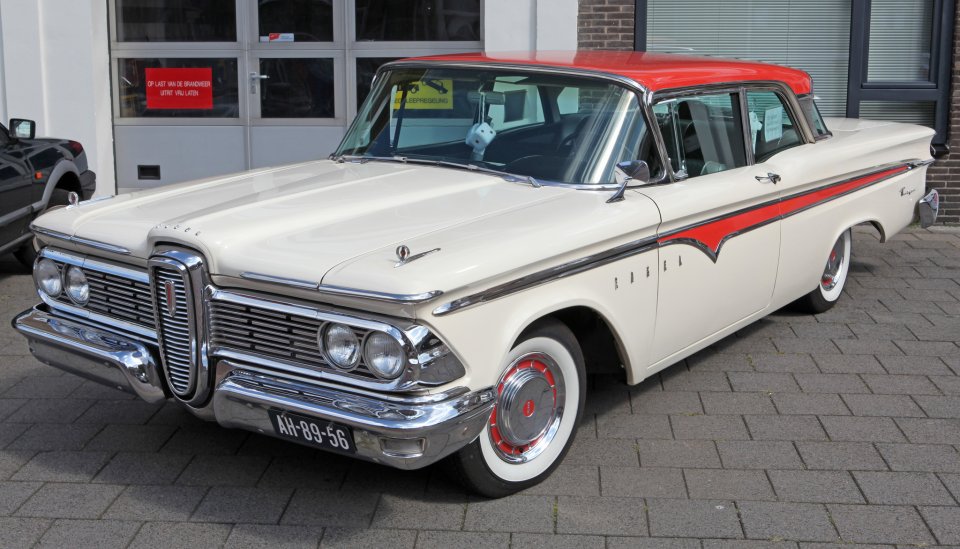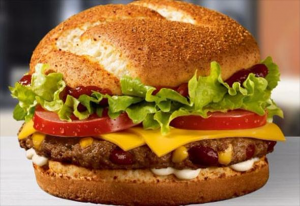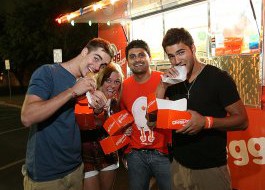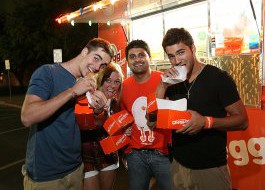It takes plenty of gumption to launch a new product. Also, less than 3% of consumer packaged goods exceed first-year sales of $50 million, which is considered as the benchmark for a highly successful launch. It is one of the reasons why some of the big brands such as Pepsi, Netflix, Microsoft, and McDonald witnessed some of the greatest crashes.
Today let us consider the great flops from the biggest companies in the world.
“There are no secrets to success. It is the result of preparation, hard work, and learning from failure.”— Colin Powell
 The Ford Edsel From 1957
Advertisements
The Ford Edsel From 1957
Advertisements
 Ford had invested $400 million on this 1957 car. However, it turned out as one of the great flops from the biggest companies around the world. Bill Gates of Microsoft has commented that the Edsel flop was his classic case study because even the name Edsel was synonymous with marketing failure. Americans could not purchase the car because they were interested in smaller vehicles, which were more economical.
Ford had invested $400 million on this 1957 car. However, it turned out as one of the great flops from the biggest companies around the world. Bill Gates of Microsoft has commented that the Edsel flop was his classic case study because even the name Edsel was synonymous with marketing failure. Americans could not purchase the car because they were interested in smaller vehicles, which were more economical.
A number of experts have blamed Ford motors for the Edsel failure, claiming that Ford’s executives never defined the model’s niche within the car market. The pricing of the car was high, and it was taken off the market just three years after its introduction.
 The Sony Betamax of 1975
The Sony Betamax of 1975
Home-video formats came to the fore during the 70s with a war between Betamax and VHS. Sony had begun selling the Betamax in 1975 when its rivals had already started releasing VHS machines. Sony had retained proprietary of the Betamax and given away an opportunity for VHS products quickly to overtake Betamax. VHS won the war despite the superiority of Betamax by simply being ubiquitous.
 Pepsi a.m. and Crystal Pepsi — 1989, 1992
Pepsi a.m. and Crystal Pepsi — 1989, 1992
Pepsi targeted the breakfast cola drinker in 1989 with Pepsi a.m. The drink just lasted about a year. Pepsi made another attempt in 1992 by introducing Crystal Pepsi, which also failed to take off and passed off in 1993. Crystal Pepsi was introduced again in 2016, and the results are still weird.
 New Coke 1985
New Coke 1985
During the early 80s, Coke was losing its market to Pepsi largely due to the infamous “Pepsi Challenge” ads. To counter the challenge, Coca-Cola wanted to create a product which tasted similar to Pepsi. Initial test results brought in positive reviews before the launch of the product in 1985. However, the results were misleading. Coke had to abandon the product after a few weeks by going back to its old formula.
 Smokeless Cigarettes From R.J. Reynolds —1989
Smokeless Cigarettes From R.J. Reynolds —1989
During the 80s when the anti-smoking campaigns were heating up R.J. Reynolds decided to invest $325 million on smokeless cigarettes. However, the plan did not work as people were just not interested in this variety. Four months down the line the product went up in smoke.
 The Apple Newton — 1993
The Apple Newton — 1993
The Apple Newton is an example of the bad days of Apple before it became the most valuable company in the world. Forbes has commented that the Apple Newton flopped for a wide variety of reasons. It was priced at $700; it was 4 1/2 inches wide and 8 inches long, and its handwriting recognition was terrible. Apple eventually managed to turn the mobile tablet market around completely with the introduction of the iPad.
 McDonald’s Arch Deluxe
McDonald’s Arch Deluxe
 McDonald’s introduced the Arch Deluxe in 1996, but it never became popular to the general public. McDonald intended to target the urban sophisticates beyond its target demographic. To target a new market, McDonald’s spent nearly $100 million making the Arch Deluxe arch one of the greatest flops from one of the biggest companies in the world. Looking back, one gets the feeling that perhaps it was too early for McDonald’s to introduce the product. Why so? Various burger chains are presently marketing more expensive burgers to the present-day equivalents of urban sophisticates.
McDonald’s introduced the Arch Deluxe in 1996, but it never became popular to the general public. McDonald intended to target the urban sophisticates beyond its target demographic. To target a new market, McDonald’s spent nearly $100 million making the Arch Deluxe arch one of the greatest flops from one of the biggest companies in the world. Looking back, one gets the feeling that perhaps it was too early for McDonald’s to introduce the product. Why so? Various burger chains are presently marketing more expensive burgers to the present-day equivalents of urban sophisticates.
 Cosmopolitan Yogurt 1999
Cosmopolitan Yogurt 1999
Cosmopolitan had a significant market share as a publishing house. However, it did make an interesting decision in 1999 to launch a brand of yogurt. The yogurt market was already saturated. Although the readers of Cosmopolitan remained content with reading the magazine, they did not evince any interest in having the yogurt. Until this time, no word is available to substantiate whether the yogurt was good or bad.
Companies like Microsoft, Frito-Lay’s, and numerous others all feature as the producers of some of the great flops from the biggest companies in the world. Therefore, it should come to no surprise to anyone that launching product is a challenge which will have to be dealt with by all.




